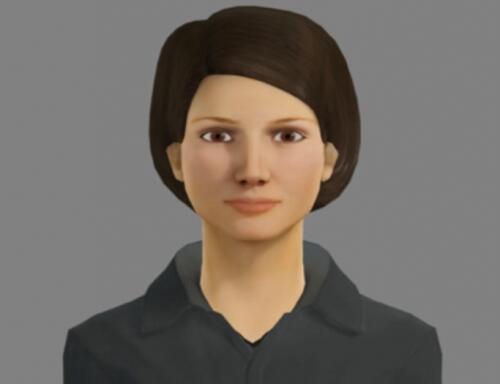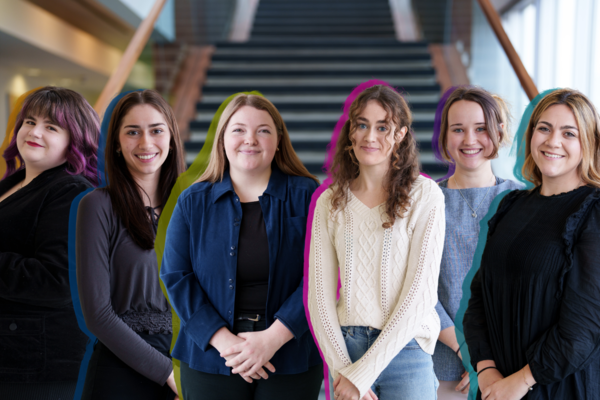
Emotionally supportive virtual assistant could help people with Alzheimer’s disease
Computer scientists at the University of Waterloo are creating a prototype of a virtual assistant to help people living with Alzheimer’s disease

Computer scientists at the University of Waterloo are creating a prototype of a virtual assistant to help people living with Alzheimer’s disease
By Media RelationsComputer scientists at the University of Waterloo are creating a prototype of a virtual assistant to help people living with Alzheimer’s disease. It will prompt them to complete day-to-day tasks by taking the person’s personality and current state of mind into consideration.
Known as ACT@Home, the emotionally intelligent assistant is a research project to develop a home-based technology that combines artificial intelligence with social psychological models.
The tool will be designed to prompt older adults living with Alzheimer’s disease to undertake or complete tasks, such as handwashing, in a way that aligns with how they feel and what they are thinking. It is designed to work by picking up emotional cues from the person, such as facial expression, posture, way of moving and tone of voice.

The virtual assistant is designed to consider people's state of mind when it reminds them to finish daily tasks. (Virtual Human image supplied by the University of Colorado: Nattawut Ngampatipatpong, Sarel Van Vuuren and Robert Bowen).
“Convincing a person with Alzheimer’s disease to do something is very difficult because it depends on the person’s interpretation of the situation, what they think is going on, what cues they are getting and who they think they are in that moment,” said Jesse Hoey, a professor at the David R. Cheriton School of Computer Science at Waterloo and lead researcher on the project. “This prototype will work by building a model of what’s going on emotionally in the mind of someone with the cognitive difficulty and then prompting them to complete an activity of daily living in a way that makes sense to them in that moment.”
Alzheimer’s disease disrupts people’s memory, and impacts their ability to engage with the world successfully because they forgot things such as what time they should take certain medication, or whether they should dry their hands after washing them.
As the disease progresses, it causes problems with reasoning and behaviour, and impairs a person’s ability to complete activities of independent daily living. People with Alzheimer’s disease may start to wash their hands, then forget what they’re doing, why they’re doing it, lose motivation, forget what they’ve done so far and repeat steps, or just stop partway through.
In developing the prototype, Hoey and his collaborators interviewed people with Alzheimer’s disease and their caregivers to better understand what it means to be a person with the disease and how they interact with others. An elderly man with Alzheimer’s disease, for instance, will interact differently with a friend than a spouse or doctor.
“Our ultimate goal is to help people maintain some independence while lessening the burden on their caregivers,” said Hoey. “The person they live with usually has to step in to help, but we are hearing that the amount of assistance and patience required can become overwhelming.”
Hoey and his team have won two awards for a paper in American Sociological Review that presents some of the core ideas of this project. They are accepting the awards for most significant paper of social psychology and in mathematical sociology from the American Sociological Association this week.
Hoey says the technology could also one day help people with Down Syndrome, various types of dementia and traumatic brain injury. He hopes it may be available within the next four years.
The research was conducted in collaboration with the Schlegel-UW Research Institute for Aging, and was supported by AGE-WELL NCE Inc., a member of the Networks of Centres of Excellence program, and the American Alzheimer’s Society.

Read more
From developing artificial pancreatic devices to advancing research on the respiratory system and more, Waterloo researchers continue to lead breakthrough projects

Read more
Waterloo announces winners of annual award for co-op students from each of the six faculties

Read more
Fifty-six researchers receive Government of Canada funding to solve some of humanity’s most critical problems
The University of Waterloo acknowledges that much of our work takes place on the traditional territory of the Neutral, Anishinaabeg and Haudenosaunee peoples. Our main campus is situated on the Haldimand Tract, the land granted to the Six Nations that includes six miles on each side of the Grand River. Our active work toward reconciliation takes place across our campuses through research, learning, teaching, and community building, and is co-ordinated within the Office of Indigenous Relations.